Director: Jaume Collet-Serra
Cast: Liam Neeson, Vera Farmiga, Patrick Wilson, Jonathan Banks, Elizabeth McGovern, Sam Neill, Killian Scott, Shazad Latif, Andy Nyman, Clara Lago, Roland Møller, Dean-Charles Chapman, Florence Pugh, Ella-Rae Smith
Running Time: 105 min.
By Paul Bramhall
If there was ever an award for the best accidental action hero in Hollywood, it would have to go to Liam Neeson. After starring in Taken back in 2008 at the age of 56, a time when the no-nonsense action movie was almost a fossil of a bygone era, Taken became an unexpected runaway success, thanks largely to his performance. Suddenly the respectable dramatic actor found his career gain a second wind as a later in life bad ass, and Jason Statham no longer found himself as the lone flag bearer of straight forward unpretentious action flicks.
Whether it be trying to take back his identity (Unknown), being pursued by ravenous wolves (The Grey), fighting terrorists on a plane (Non-Stop), playing a grizzled private investigator (A Walk Among the Tombstones), or trying to protect his estranged son (Run All Night), Neeson embraced his new calling with a welcome vigour. Nobody needs to talk about the Taken sequels. What’s interesting to note is that 3 of the movies mentioned, Unknown, Non-Stop, and Run All Night, have all been helmed by the same director – Spaniard Jaume Collet-Serra. After getting his start with horror flicks like House of Wax and Orphan, Collet-Serra has worked exclusively with Neeson since partnering for the first time on 2011’s Unknown, and 2018 delivers their fourth collaboration with The Commuter.
This could well be the pairs swansong together though, as it was widely reported during the 2017 Toronto International Film Festival that Neeson declared he’s done with action movies, stating in his own inimitable way “Guys, I’m sixty-fucking-five.” If only Jackie Chan had a similar attitude. He does have one more action movie, which at the time of writing is still in post-production, called Hard Powder (a remake of the 2014 Norwegian movie In Order of Disappearance), which effectively makes The Commuter his penultimate action outing.
Unlike their previous efforts though, Neeson is not such an obvious bad ass here. Playing a former cop (naturally) who is now an insurance salesman, he commutes every day to the city from the suburbs, where he lives with his wife and son, which we see in an opening montage that effectively portrays the normality of his day-to-day life. After having an exceptionally bad day in the office, his commute home is interrupted by a mysterious lady (played by Vera Farmiga – Norma Bates from the TV series Bates Motel), who decides to sit next to him. Striking up small talk, things get more sinister when she offers him a ‘hypothetical’ scenario. If he’s able to find a passenger on the train, with only the knowledge of their name, the stop they’re getting off at, and that they’re carrying a bag that doesn’t belong to them, he’ll be rewarded with $100,000.
Before getting off at the next stop, she tells him $20,000 of it is hidden in the train toilet, and with that she’s gone. His curiosity piqued, and further motivated by the financial burden of sending their son to college, he decides to see if the money is actually there, and is set on a path that sees the emergence of the post-2008 Neeson we know and love. In short, he’s bitten off more than he can chew. Cue plenty of laugh inducing stilted dialogue that Farmiga provides over the phone at regular intervals, which pull double duty as a kind of narration to what’s going on in the world beyond the train carriages, and the lanky Irishman soon finds himself in familiar territory.
Of course setting any movie within a confined space presents a particular challenge to even the most creative directors out there. We don’t need to go too far back in time to see more recent examples of the train set thriller, with both the likes of Snowpiercer and Train to Busan also playing out almost entirely within the carriages that their titles allude to. Like its Korean counterparts, The Commuter uses the device of surrounding Neeson with an interesting cast of supporting characters, as he frequently finds himself pacing between cars looking for unfamiliar faces amongst the regulars. They may be stereotypes – the weary worker ready for retirement, the pretentious broker who’s never off his phone, the exhausted Latino nurse, and the rebellious student to name just a few – but they work to keep Neeson interacting so he doesn’t become isolated.
Of course any movie such as The Commuter earns its worth by how skilfully it ratchets up the tension as it progresses, and Collet-Serra does an amicable job. The plot devices used may be as old as time itself, such as the revelation that Neeson’s family will be in danger if he doesn’t find the person he’s looking for, and indeed the main driver itself that he only has until a certain stop to find the person, but they do what they’re there to do. Like previously mentioned, Neeson has become synonymous with no-nonsense action thrillers, and The Commuter aims to deliver exactly that, nothing more and nothing less.
With that being said, as the train hurtles towards its destination, several cracks do start to show. The script in particular seems to lose its way towards the end. The main issue is that Neeson goes from being a stressed out passenger willing to do anything to protect his family, to a kind of surrogate father to the passengers on the train, with sudden declarations of how he’ll keep everyone safe and won’t let the bad guys win. Sure, the dialogue has been stilted throughout, but for the most part it applied to everyone else’s lines except his. Budgetary constraints also rear their head when it comes to the train derailing, I mean yes it looks passable, but it’s one of those scenes were there’s never any doubt that what we’re watching is a CGI train wreck (literally), masked over by making it as appropriately noisy as possible.
However for those clocking in to see some Bryan Mills-esque violence, The Commuter signals as indicative a sign as any that Neeson is ready to hand up his action boots. We do get a nicely chaotic fight, pitting an electric guitar wielding Neeson (yes you read that right) against an axe wielding assassin, that manages to feels suitably brutal (there’s something unexpectedly enjoyable about watching someone have an electric guitar smashed over their head). However outside of this scene we’re limited to a brief couple of scuffles. The Commuter eventually turns into the type of movie were scenes reach a climatic crescendo with lines like “You have a monthly ticket, you’re a regular commuter!” Gripping stuff.
I would have preferred to have Collet-Serra explore ways in which Neeson could have really let loose within the intimate confines of the carriages, and go on the offensive with the bad guys, but instead he attempts to go the bombastic route with the derailing scenario. Apart from suddenly feeling like a needless re-tread of Unstoppable, it also segues into a completely unremarkable standoff with the police, which end things with a whimper rather than the punch in the nose I would have preferred. For me part of Taken’s success, and indeed Neeson’s other efforts since then, have been the way they rely on his physical performance, rather than the scenes of mass CGI destruction we now take for granted in Hollywood blockbusters. The Commuter isn’t a blockbuster, but at some point it feels like it’s trying to imitate one, which was the point when I lost interest.
Despite not being the pairs strongest collaboration together, Neeson can at least say he’s done it all – Planes, Trains, and Automobiles. From the gut punch that was Taken 10 years ago, there’s little doubt that The Commuter feels more like an average thriller than a kick ass and take names action flick, one that a certain demographic would likely have been hoping for. It may be serviceable, but just like the insurance firm Neeson works for explain his redundancy is due to his position no longer being required, so it is in the cinematic world his “very particular set of skills” are no longer needed either. The good news is, Neeson isn’t waiting for redundancy to make the decision for him, and while The Commuter certainly isn’t a highpoint of the past decade, it at least gets you from A to B.
Paul Bramhall’s Rating: 6/10

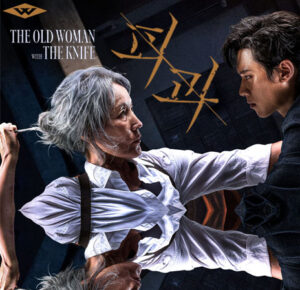
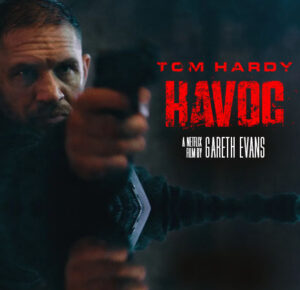
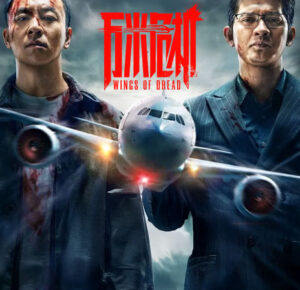

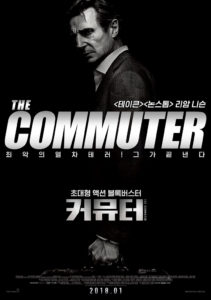
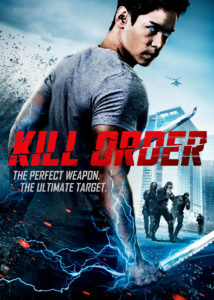
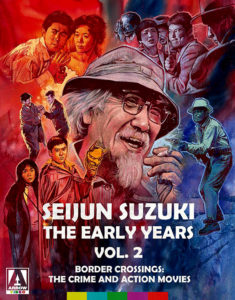
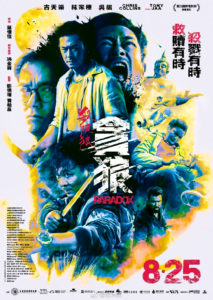
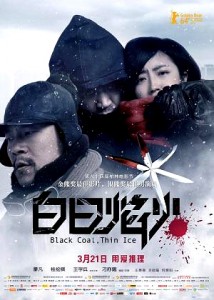
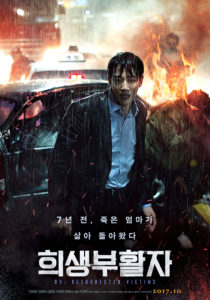
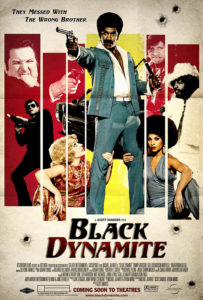
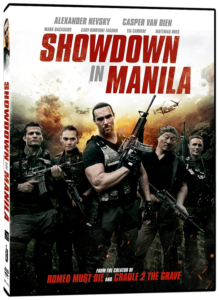
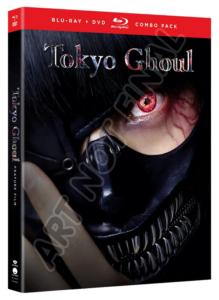


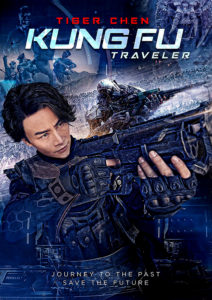
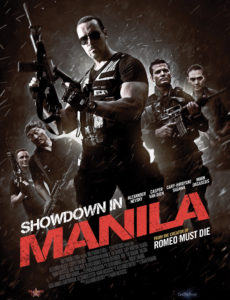

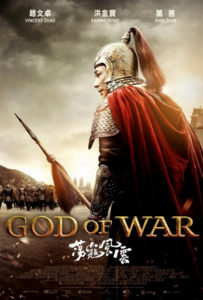


3 Comments